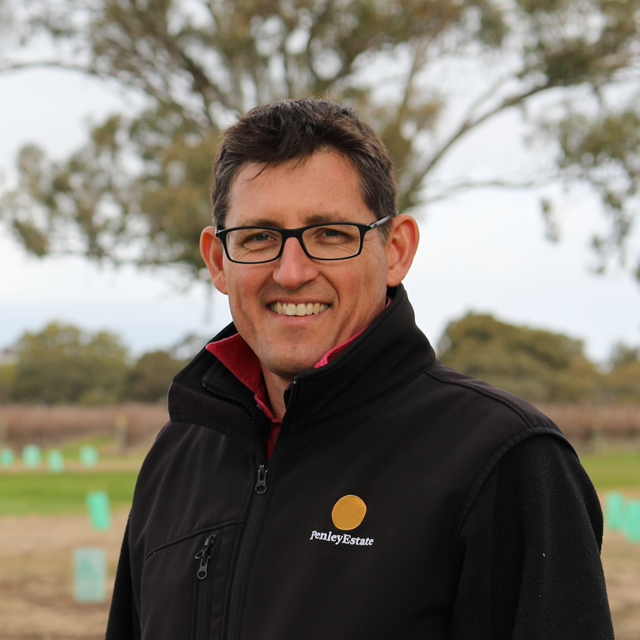1. Tell us about your experience in grape growing?
I grew up around viticulture as my father was a viticulture consultant and founding viticulture lecturer at the former Riverina College of Advanced Education. This upbringing led me to study both Geology and Viticulture at university and I now have over 10 years experience in Vineyard Management.
I have always pursued an understanding of the principles behind viticulture practices to ensure informed management and sustainable production. Several years ago I became aware of the work being undertaken by Prof. Steve Wratton of Lincoln University NZ in the area of vineyard biodiversity, ecosystem services and biological control of pests.
This work was rolled out under the “Greening Waipara Program” and was at the opposite extreme of the “perfect monoculture” approach to vineyard management. Since seeing the work I’d been interested in bringing this approach to vineyards I manage.
2. What prompted you to want to be involved in the EcoVineyards project?
The owners of Penley Estate are highly progressive and have a desire to reduce Penley Estate’s environmental footprint. They have encouraged me to roll out many of the initiatives I’ve seen and learnt about over the years but hadn’t had the opportunity to implement. This has seen integration of soil science, precision viticulture, IPM strategies etc. with the aim of delivering long – term sustainable management.
Involvement in the project provides an opportunity for Penley Estate to establish insectary plantings in a structured way, with support from experts in the field such as Mary Retallack. These sites will become regional focal points for other growers wishing to establish insectary sites and will hopefully make it easier for them to have success from the get go; particularly by becoming sites which convey a lot of hard won knowledge and experience in a simple, tangible package!
3. What do you hope to achieve from your involvement in the EcoVineyards project?
We want to establish functioning insectary sites at Penley Estate and survey our progress by benchmarking vineyard pests and beneficial insects with ongoing monitoring.
This will lead to greater diversity in the vineyard, improved vineyard resilience to pests and disease and great wines coming from healthy vines! There’s also an element of personal growth for me, as I want to gain a greater appreciation of plants, insects and the general biodiversity of the region I live in!
4. Have you tried to increase biodiversity on your property before undertaking this project? If so, how?
We have implemented integrated pest management strategies across the vineyard along with reduced chemical usage and careful selection of chemicals used. We have also shifted our focus to use organic and softer products such as Dipel in conjunction with focusing on timing of application.
5. Why do you think it is so important for growers to try and build natural resilience on their property?
In order for land to remain viable and vineyards to display resilience to extremes, we need to work smarter and give something back! As per comments by our winemaker Kate Goodman, “The wines we make are the subject of the environment they’re grown in and we really have to nourish these places.” Preservation of local ecosystems can have direct benefits to a vineyard, but also to biodiversity and the overall health of a region.
An aspect of sustainability includes ongoing financial viability and use of ecosystem services makes sense on a variety of levels. I love the saying, “we live in an environment, not an economy!”
6. Looking to the future, what do you see as a new ‘normal’ for grape growers on their properties?
I think vineyards will be planned with integrated insectary areas as a given. These areas can be multi purpose and serve as a wind break, shelter belt and insectary planting.
I also believe the general image of a vineyard will shift from being one with a clear under – vine area, to an environment in itself (nature is messy!). Pesticide will also be used as the exception rather than the rule.
Cellar Door visitors will also gain a sense of place to the region they are in. Not only through the enjoyment of local wines and stories, but also through observing the indigenous plantings which complement the vines and encourage greater biodiversity!
READ THE CASE STUDY

